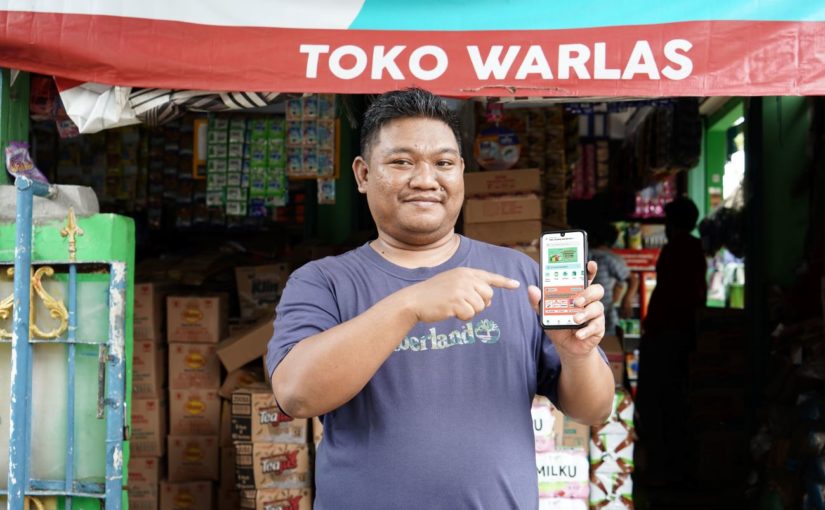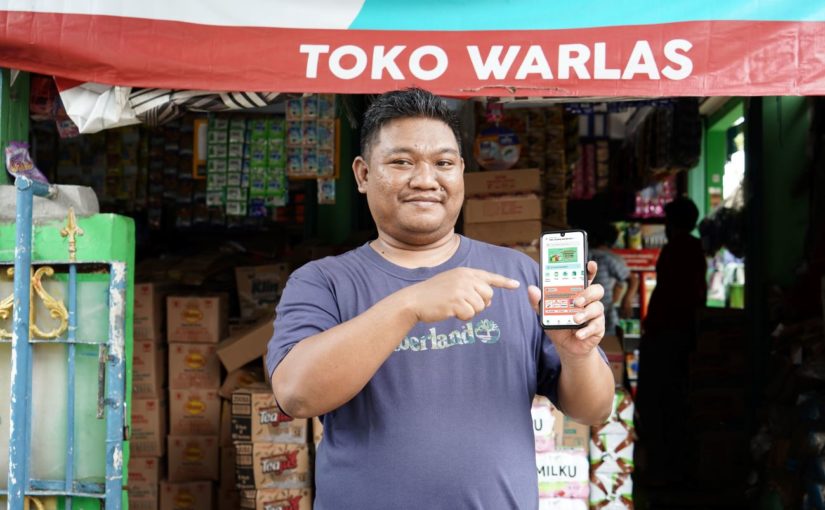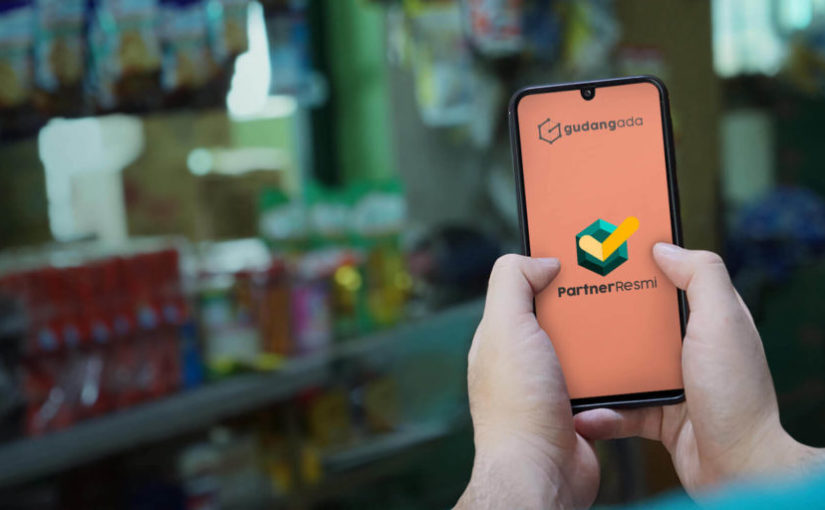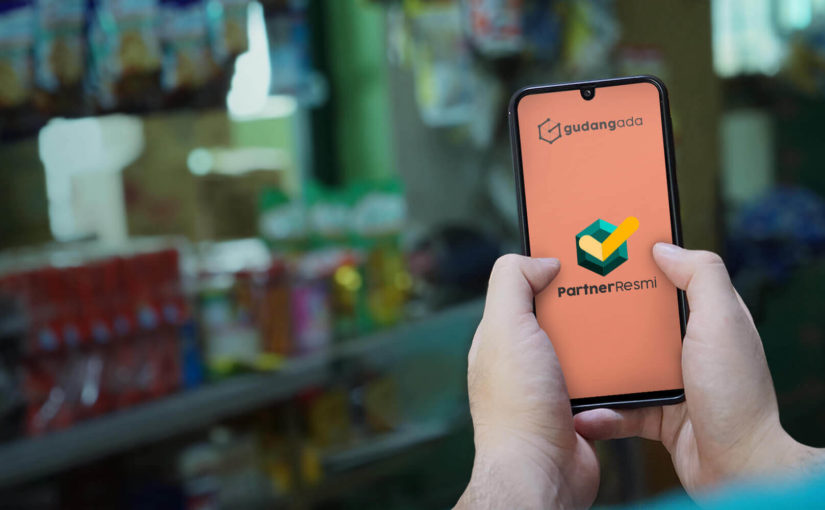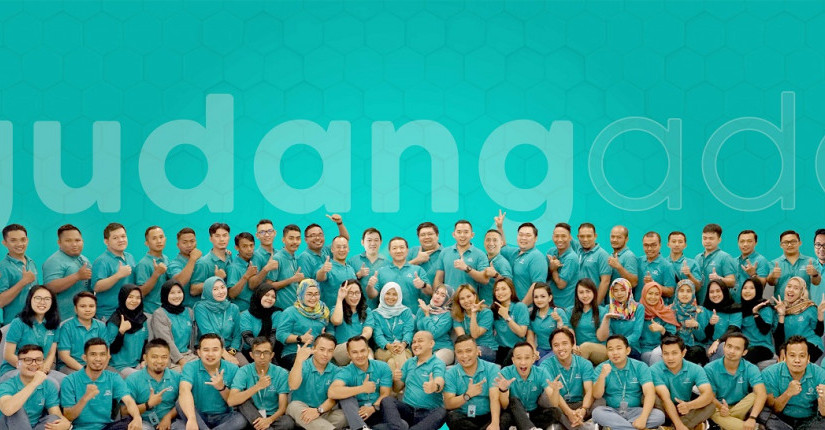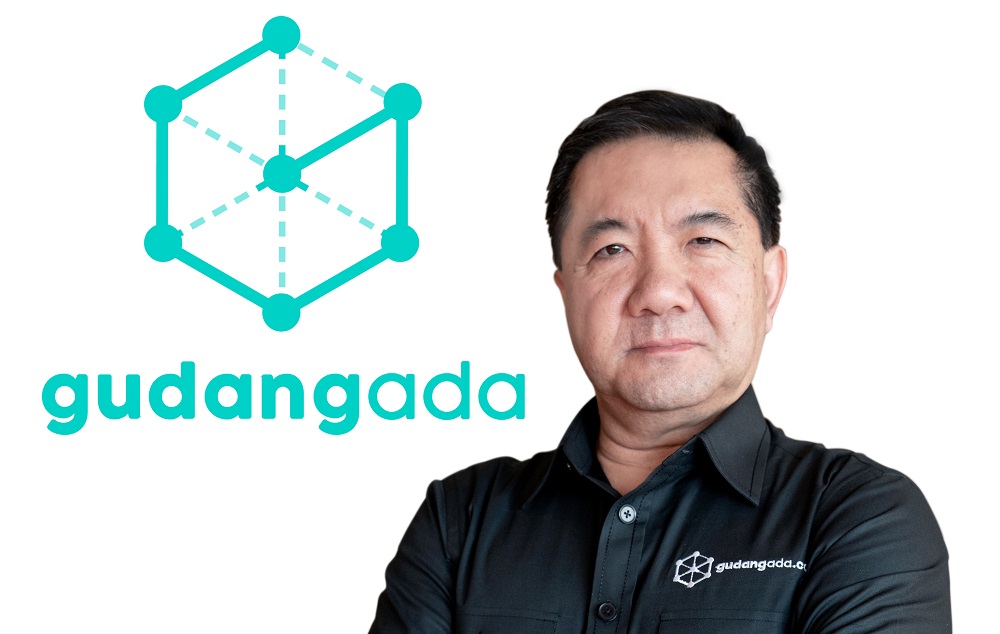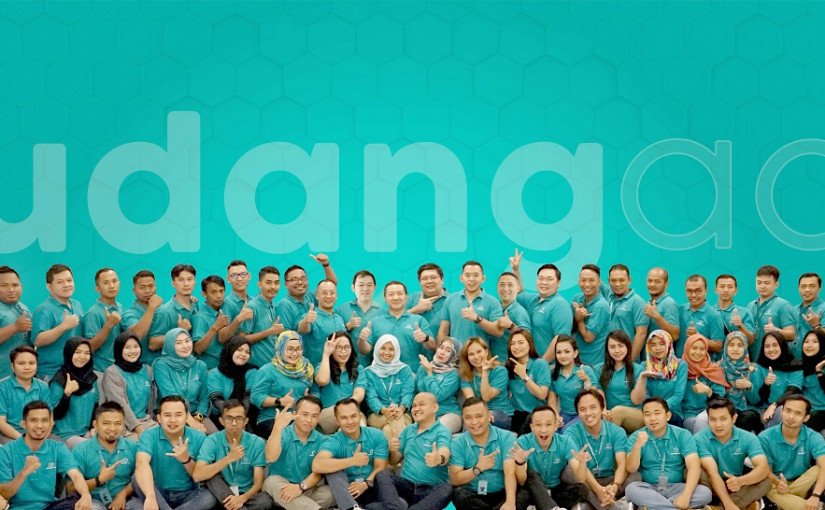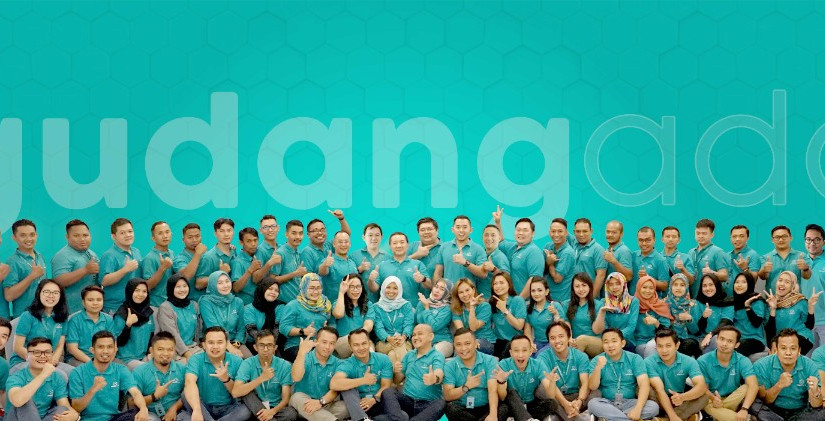In two and a half years, B2B e-commerce startup GudangAda has closed its $100 million Series B funding round. The announcement comes one year after securing $25.4 million in Series A funding. The total funding raised has crossed the $135 million mark.
This achievement is claimed to be supported by business growth. The net transaction value (NVM) is said to reach $6 billion. NVM is an alternative metric to GMV in e-commerce companies. The way to calculate NVM is GMV minus all costs.
The question that arises is what does GudangAda offer compared to other B2B e-commerce players? You could say GudangAda is not the first player in this vertical.
In an interview with DailySocial, GudangAda CEO Stevensang explained, the first reason the company can grow fast is because it is filled with solid talent with deep experience in the industry that the company is currently focusing on. “When we enter the industry with an understanding of more than 25 years, we already have a very clear roadmap and strategy,” he said.
Stevensang himself has more than 25 years of experience in the retail and FMCG industry in Indonesia and Southeast Asia. Previously, he led a subsidiary of the FMCG conglomerate Orang Tua Group. GudangAda’s core team consists of technology and FMCG professionals with extensive experience.
The ranks of investors also support GudangAda’s business. They are claimed to have validated GudangAda’s business by conducting due diligence and in-depth audits before disbursing funds to potential investees. “There are our investors who have followed our journey since last year, witnessed the number of retailer brands that have partnered with us until now.”
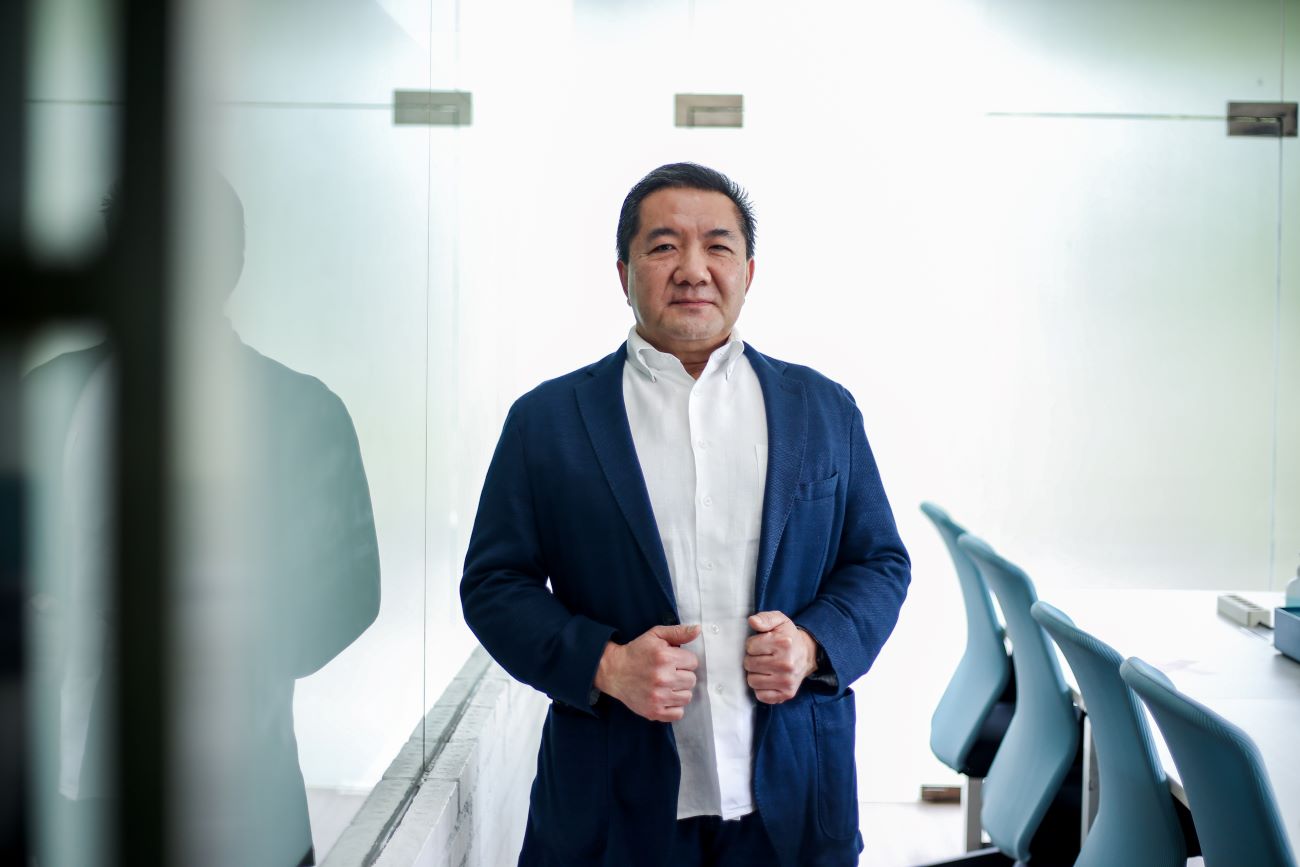
Solving middle mile issues
The next factor is the solution that GudangAda offers. Although GudangAda’s main view is as a B2B e-commerce, the backend is designed quite complex because the company wants to solve the middle mile issue that has not been worked out by logistics companies.
According to Stevensang, smart logistics has not yet fully occurred in Indonesia. The process has not occurred end-to-end.
“In Indonesia, there are more last mile and first mile players. So if we look at the last mile, the progress is extraordinary, but there are still challenges when integrating hub-to-hub because it doesn’t exist yet.”
According to Route4me’s explanation, the middle mile involves sending goods from a warehouse or distribution center to a fulfillment center (including retail stores) until the product is finally purchased by consumers. Middle miles connect shippers with drivers by using programmatic algorithms to match deliveries of specific products to the truck driver’s capabilities, schedule, and location.
Middle mile holds an important aspect, as it offers companies cost savings opportunities that last mile delivery does not have. Not only that, companies can be more competitive to maintain prices for healthy margins, even in the brick and mortar retail business.
As a middle mile, GudangAda focuses on being an aggregator to facilitate logistics services from large wholesalers to small wholesalers or to retailers (warung traders). So far, distributors tend to only ship products exclusively for certain principal brands. As a result, the truck capacity has not been fully exploited because there is still capacity that can be utilized.
By applying the asset-light and capital-efficient business concepts, the company cooperates with vehicle and warehouse business owners, including with UMKM members of GudangAda. In addition, the company offers a dynamic transportation and warehouse management service system to make it easier for partners to digitize their business.
GudangAda helps distributors/ wholesalers to utilize their logistics fleet or trucks by transporting products from other brands.
“In principle, the company’s main strength is building a middle mile logistics service infrastructure by collecting and integrating data available at distributors and wholesalers.”
Talking about logistics strategy, GudangAda consolidates transactions into a daily delivery schedule so that shipping costs are much cheaper. The company works closely with wholesaler partners to utilize stock points to reduce end-to-end logistics costs.
Finally, GudangAda empowers local logistics partners to aggregate service providers and facilitates technology that partners can adopt so that the logistics process becomes faster. “If usually one truck only runs once, we can provide them with many shops so that the utility of the truck increases.”
For its e-commerce business process, GudangAda provides a platform for wholesalers and principal brands to sell themselves and sell directly to retailers so that prices are determined directly by them. “So all of these parties can sell and determine the price they want to sell.”
GudangAda monetization scheme is taken from transaction fees charged to sellers and logistics costs.
The GudangAda solution is considered much more “friendly” because it is an enabler that provides added value for distributors to enter the realm of e-commerce, as well as empowering retailers consisting of shop owners to gain access to a variety of product stocks.
“Brand principals take advantage of our platform because the value we offer is transparent, allowing access to more retailers. They can also know the flow. We don’t interrupt, we are more friendly.”
The GudangAda application provides a complete service ecosystem for MSMEs, ranging from product source search features, sales and purchase transaction management, logistics transportation provision, and payment management.
As of now, there are more than 70 principal brands, from local, national, and multinational, who have taken advantage of the GudangAda platform, including Sido Muncul, Sasa, and Reckitt Benckiser. There are additional 100 new brands that are claimed to be waiting in line to join. The brand principal provides more than 30 thousand SKUs.
Currently, GudangAda is not only targeting the FMCG brand, but also expanding to the pharmaceuticals, packaging, household appliances, and stationery segments. This expansion is driven through end-to-end (E2E) partnerships with principals, distributors, wholesalers and retailers in the supply chain.

Building a sustainable business
As an asset-light and capital-efficient company, Stevensang aims for GudangAda to become a healthy and sustainable company. The metrics used by the company include revenue (revenue), number of users, and number of brand principals.
“It’s not just a big turnover, we take care of all these metrics so that GudangAda becomes a sustainable business.”
To support the plan, the company appointed Huan Yang, former chief engineer of Grab, as CTO and JJ Ang as CFO. Ang previously worked at Vietnamese e-commerce company Sendo.
Stevensang has a vision that in the future the company can become a company that empowers more merchants to transform digitally, and develop with a skill set according to market needs. They can understand the inventory system, financial records, and financial support to grow their business even though they are still managing a shop.
“They are not left behind in terms of technology because they can do what they can do through data, they can do digital marketing. So they don’t just invest in physical goods as well as technology.”
Supported by Series B funding, the company will strengthen its ecosystem, such as logistics services, payment systems (POS/SaaS), marketing, data, and financial services. And, plans to strengthen its position by developing artificial intelligence/AI technology in order to offer the best personalization services for MSME traders.
It is said that currently there are more than 500 thousand stall traders in 513 cities throughout Indonesia who have purchased products through GudangAda. It is targeted that this year they can have 750 thousand to 1 million stalls as consumers.
–
Original article is in Indonesian, translated by Kristin Siagian
